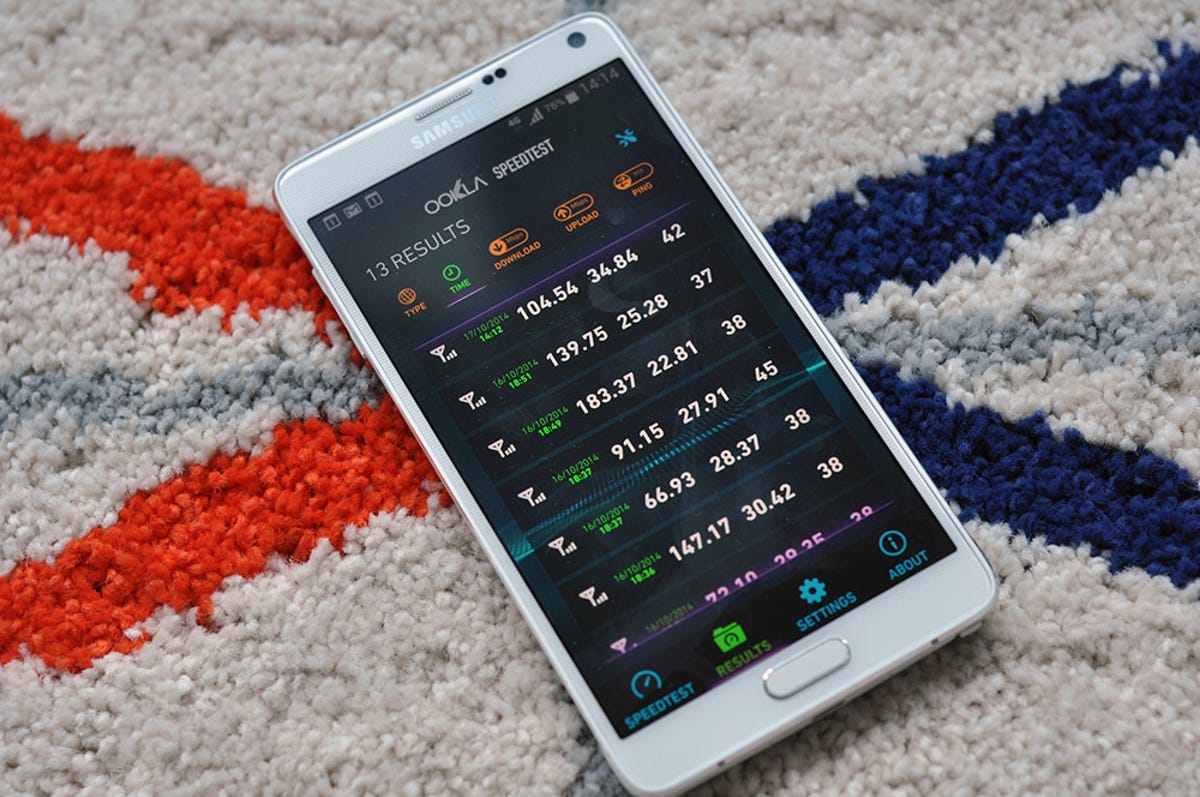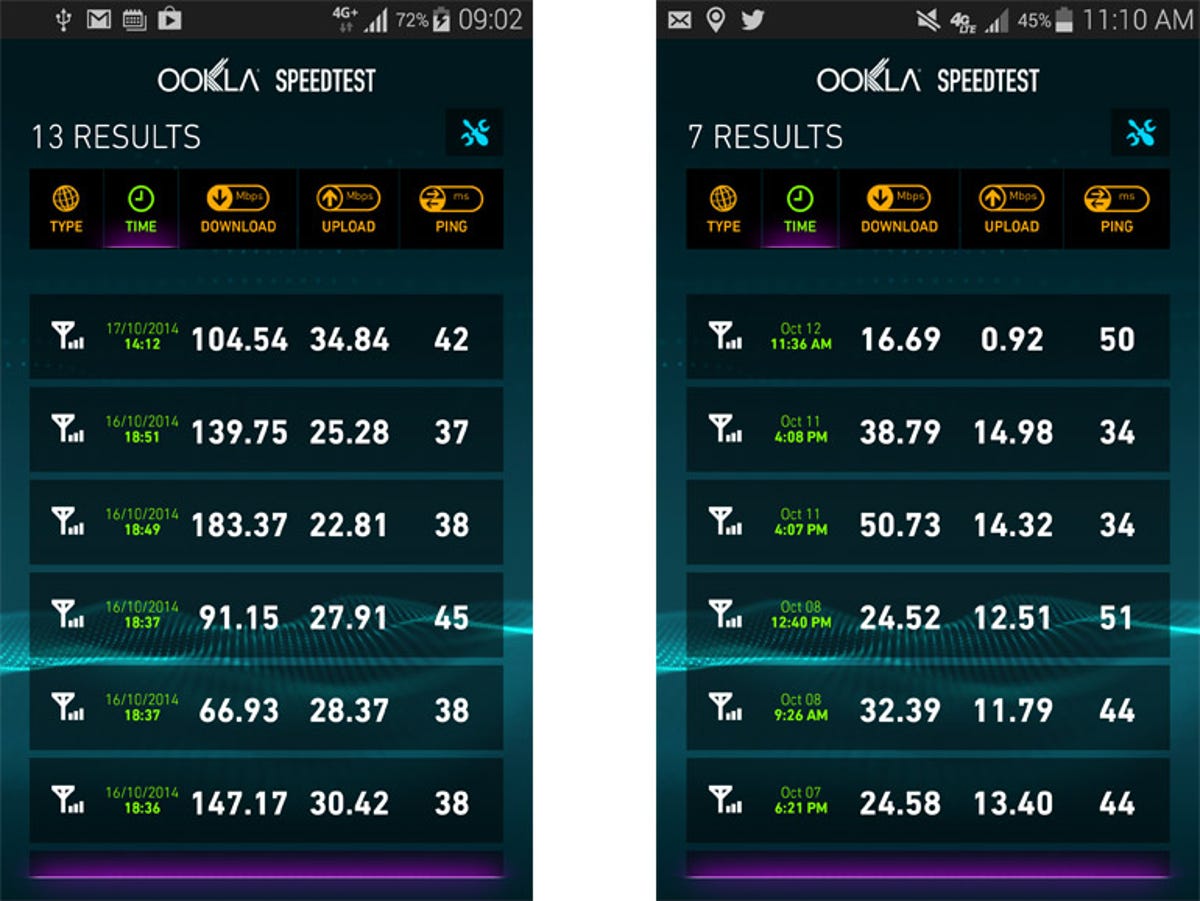
Aloysius Low/CNET
One of the best things about living in Singapore is the mobile network infrastructure. Over the past few years, the Singapore government has invested heavily in making the island state as fibered up as possible.
That result of that effort was more than evident as I tested the Samsung Galaxy Note 4 , which supports LTE-Advanced data networks. Though I didn’t hit the fastest possible download speeds of up to 300Mbps, I far eclipsed the speeds that my US colleague, Jessica Dolcourt, encountered when reviewing the Galaxy Note 4 in San Francisco.
So far only one carrier here, SingTel, has a LTE-Advanced network in place. It covers 55 percent of the island, but my download speeds topped 183Mbps while Jessica clocked 50Mbps for her highest download speed using AT&T.


Screenshot by Aloysius Low/CNET and Jessica Dolcourt/CNET
To be honest, it feels more like a numbers game now. While it’s great to have these crazy speeds, the carriers aren’t giving you the bandwidth to utilize it. Gone are the days of large data caps (or even unlimited ones).
Unless you were grandfathered in from the previous plans or have yet to recommit from your old plan with a large data cap to a new one with a reduced cap, these days, you have to make do with whatever the carriers decide to offer you.
In this regard, Singapore’s pretty close to the US market, but instead of custom plans, carriers here mostly give a fixed amount for your mobile plan, usually from 2GB to 5GB, and charge you around S$10.70 ($8) per gigabyte of excess with a cap of S$188 ($150) per month.
Before the advent of 4G, carriers enticed customers with data caps of 12GB to get them to sign up. This amount has steadily gone down with new 4G devices, but carriers have “compensated” by giving more free text messages (which cost them nothing) and more call time.
This hasn’t been well received by users, and in particularly by me, because having a larger data cap allows one to use data to send text messages through apps like Line or WhatsApp and make VoIP calls, thus making the carrier nothing more than a big, dumb pipe.
This is the nightmare scenario for them, which is why the plans have changed. As long as the carriers continue to be able to lock you into contracts with shiny, new phones, this isn’t going to change anytime soon.



